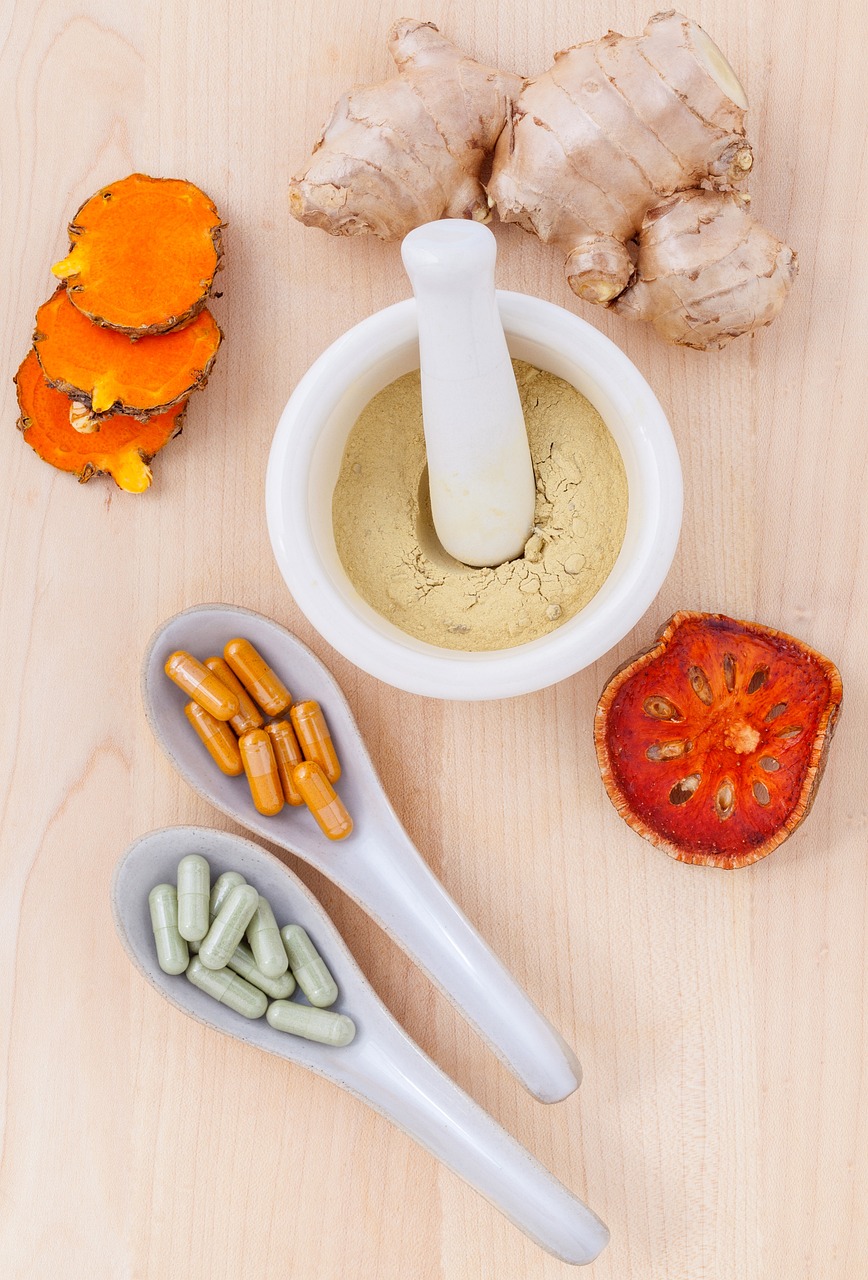In our step-by-step guide, “How to determine the correct dosage of herbal supplements,” we aim to provide you with a clear understanding of how to determine the appropriate dosage for herbal supplements. We understand that navigating the world of herbal supplements can be overwhelming, and it is essential to ensure that you are taking the correct dosage for optimal results and safety. This guide will help you make informed decisions and empower you to take control of your health and wellness journey.
Research the Herb and its Dosage Recommendations
To research the herb and its dosage recommendations, start by gathering information about the specific herbal supplement you intend to take. Consult reliable sources such as scientific studies, reputable websites (here is a good one), or books written by experts. Analyze the available data to determine the recommended dosage for the herb in question.
Consult with a Healthcare Professional
It is crucial to consult with a healthcare professional before incorporating any herbal supplement into your routine. They can offer personalized advice and guidance by taking into account your unique health condition, current medications, and potential interactions. To illustrate, let’s say you found a research study suggesting a particular dosage for a herbal supplement. Instead of self-medicating, consulting with a healthcare professional will help you determine if that dosage is appropriate for your specific needs and ensure your safety.
Consider Your Age, Weight, and Health Condition
Take into account factors such as your age, weight, and specific health condition when considering herbal supplements. For example, if you are older or have a lower body weight, you may need to adjust the dosage accordingly. Additionally, certain health conditions may require modifications in dosage or avoidance of certain herbal supplements altogether. It is crucial to consult with your healthcare professional to determine if any adjustments or modifications are necessary for your specific circumstances.
Start with the Minimum Recommended Dosage
Start with the Minimum Recommended Dosage
When starting a new herbal supplement, begin with the minimum recommended dosage. Follow the dosage instructions provided by the manufacturer or your healthcare professional. This approach allows your body to adjust gradually and helps you monitor any potential side effects or adverse reactions. By starting with the minimum dosage, you can ensure that you are introducing the supplement to your system safely and effectively.
Observe and Evaluate the Effects
To effectively observe and evaluate the effects of a medication or treatment, we recommend taking these steps:
- Take the initial dosage: Begin by taking the recommended dosage of the medication or treatment. Follow the instructions provided by your healthcare professional or the product label.
- Observe changes in symptoms: After taking the medication, pay close attention to any changes in your symptoms. For example, if you’re taking a pain reliever, note whether the intensity of your pain decreases or if any other symptoms associated with your condition improve.
- Assess overall well-being: Evaluate how the medication or treatment affects your overall well-being. Consider factors such as energy levels, mood, and sleep quality. If you notice improvements in these areas, it may indicate that the treatment is having a positive effect on your body.
- Monitor for adverse reactions: Be vigilant for any adverse reactions or side effects. These can vary depending on the medication or treatment, but may include nausea, dizziness, or allergic reactions. If you experience any of these, it’s important to contact your healthcare provider immediately.
- Keep a journal: To track your experience, keep a journal where you record your observations and evaluations. Include details such as the date, time, dosage taken, and any changes you notice in your symptoms or well-being. This will help you track patterns over time and provide valuable information when discussing your progress with your healthcare provider.
By following these steps and maintaining a journal, you’ll be able to gather valuable information about the effects of the medication or treatment on your body. This will not only aid in your personal understanding but also provide valuable insights for your healthcare provider, allowing for adjustments or alternative options if necessary.
Increase the Dosage Gradually (if necessary)
If you find that the initial dosage of your medication does not have the desired effect, we recommend considering gradually increasing the dosage. However, it is crucial to consult with your healthcare professional before making any changes. They will be able to guide you on the appropriate increment and closely monitor your progress. For example, if you are taking a medication for pain relief and the initial dosage is not providing sufficient relief, your doctor may suggest increasing the dosage by a small amount and monitoring how your pain levels respond over a period of time.
Monitor for Side Effects
- Step 1: Throughout the dosage adjustment process, monitor your body for any side effects that may occur.
- Step 2: Be aware that some herbal supplements have the potential to cause adverse reactions or interact with medications.
- Step 3: If you notice any unusual symptoms or experience side effects such as nausea, dizziness, or allergic reactions, immediately consult with your healthcare professional.
- Step 4: Provide your healthcare professional with detailed information about the herbal supplements you are taking and any other medications you are on.
- Example: For instance, if you are taking St. John’s Wort and notice increased sensitivity to sunlight, inform your healthcare professional promptly.
- Example: Another example is if you are experiencing stomach upset after starting a new herbal supplement, report this to your healthcare professional.
- Step 5: Follow your healthcare professional’s advice and instructions regarding the continuation or discontinuation of the herbal supplements.
- Step 6: Regularly monitor your overall health and well-being while using herbal supplements to ensure they are not causing any harmful side effects.
- Example: Keep track of your blood pressure, heart rate, and any changes in your mood or energy levels.
- Example: If you are using an herbal supplement for its potential weight loss effects, monitor your weight and body composition to assess its efficacy.
- Step 7: By actively monitoring for side effects and promptly seeking professional advice, you can ensure your safety while using herbal supplements.
Give your Body Time to Adapt
- Start by adjusting the dosage of herbal supplements gradually.
- Give your body at least a few days or weeks to adapt to the new dosage.
- Avoid making frequent changes to the dosage unless you have been advised by your healthcare professional.
- Monitor your body’s response to the new dosage and pay attention to any noticeable effects.
- Be patient and allow enough time for the herbal supplements to take effect before considering further adjustments.
Regularly Reassess the Dosage
Regularly reassess the dosage of your herbal supplement as your body adapts and your health condition changes. Consult with your healthcare professional periodically to ensure the dosage remains appropriate and effective.
Be Mindful of Interactions with Other Medications or Supplements
Include a comprehensive list of all the medications and supplements you are currently taking. This will help your healthcare professional identify any potential interactions. Remember to include over-the-counter medications, vitamins, and herbal supplements.
Research the potential interactions between your medications and supplements. Look for information on reputable websites, such as the National Institutes of Health or the Mayo Clinic. This will provide you with accurate and reliable information regarding any possible adverse effects or interactions.
Consult with your healthcare professional before starting any new medication or supplement. They can assess the potential risks and benefits and determine if any adjustments need to be made to your current treatment plan.
If you experience any unusual symptoms or side effects while taking a new medication or supplement, contact your healthcare professional immediately. They are the best resource to help you address any concerns or complications that may arise.
Key Takeaways
In conclusion, we have learned that determining the correct dosage of herbal supplements is a crucial step in ensuring their safety and effectiveness. Through thorough research, seeking guidance from a healthcare professional, and monitoring our body’s response, we can make informed decisions about the appropriate dosage. By taking these steps, we can maximize the benefits of herbal supplements while minimizing any potential risks. Remember, always prioritize your health and well-being when incorporating herbal supplements into your routine.
Dosage Guidelines
Dosage and Administration
- Start by consulting a healthcare professional: Before incorporating any herbal supplements into your routine, it is important to consult with a qualified healthcare professional. They can assess your individual needs, medical history, and potential interactions with any medications you may be taking
- Research and select reputable brands: With the increasing popularity of herbal supplements, it is crucial to choose reputable brands that prioritize quality and safety. Look for products that have been third-party tested, certified organic, and manufactured following good manufacturing practices
- Read and follow the instructions: Each herbal supplement may have specific instructions on how to use them. It is essential to carefully read and follow the dosage recommendations and any additional instructions provided by the manufacturer. This will help ensure you are using the supplements correctly and safely
- Start with low dosages: When starting with herbal supplements, it is often recommended to begin with low dosages and gradually increase as needed. This allows your body to adjust and helps you assess any potential side effects or sensitivities. It is always better to start with a lower dose and gradually work your way up, rather than taking a high dose right from the beginning
- Monitor your body’s response: Pay attention to any changes or reactions your body may experience after taking herbal supplements. This includes both positive effects, such as improved energy or better sleep, as well as any negative effects or adverse reactions. If you notice any concerning symptoms, discontinue use and consult your healthcare professional
- Remember, herbal supplements are not a substitute for a healthy diet and lifestyle. They should be used as a complementary approach to support overall well-being

